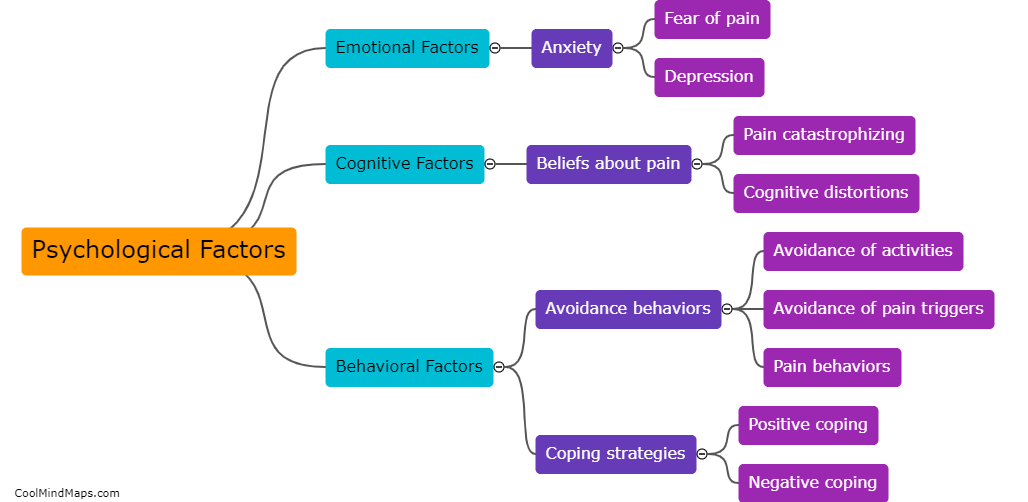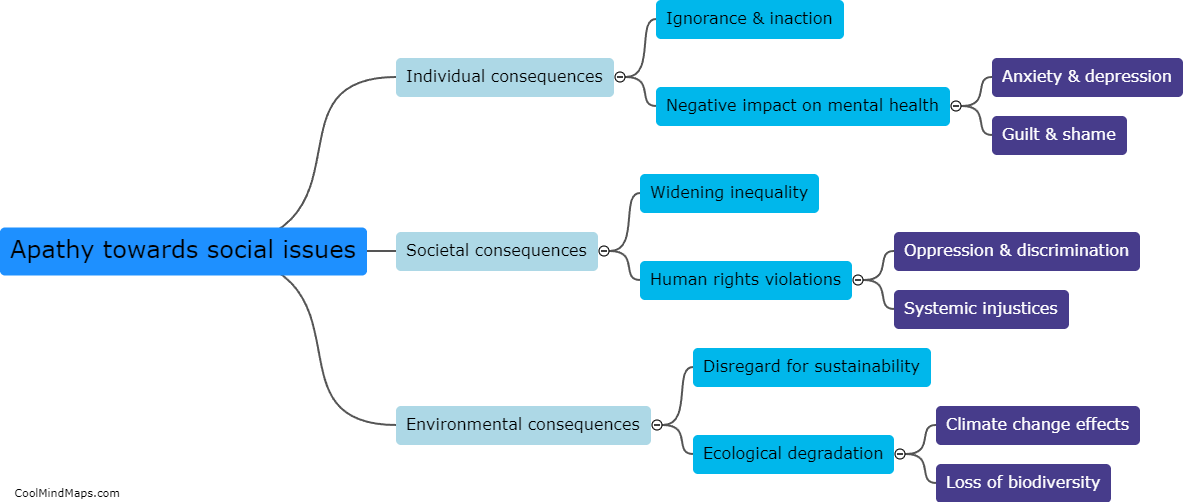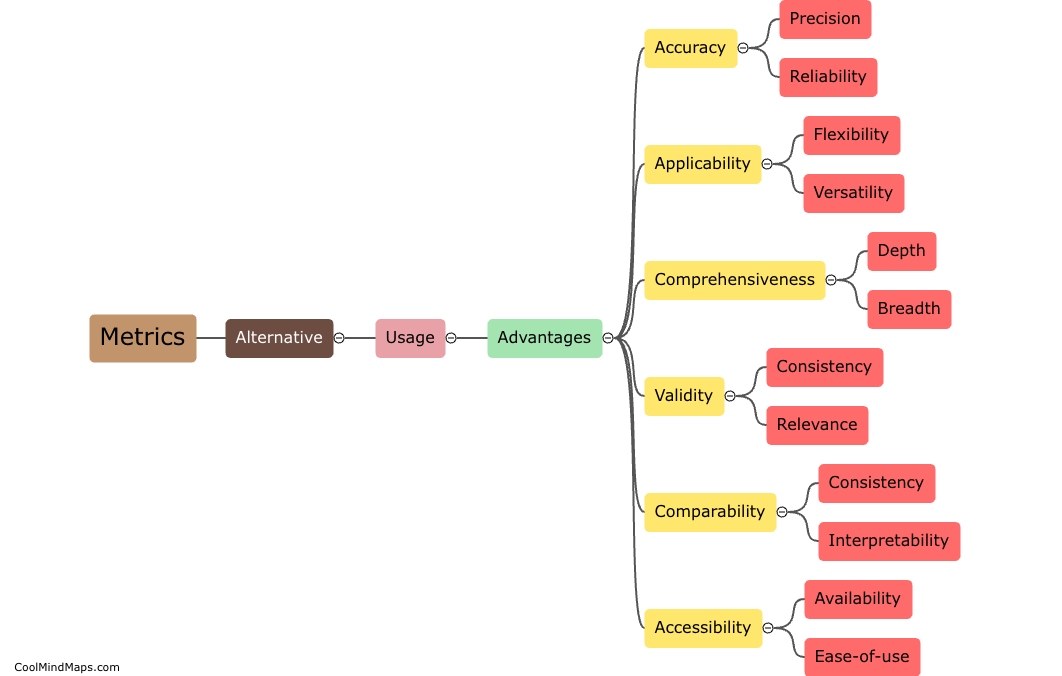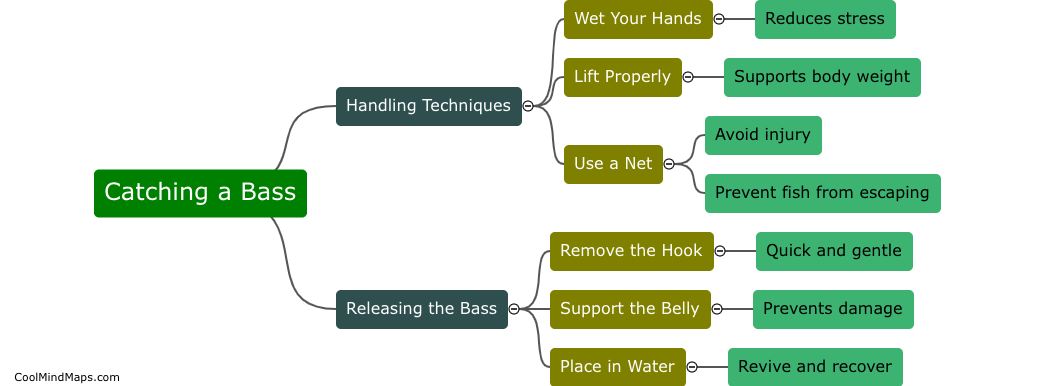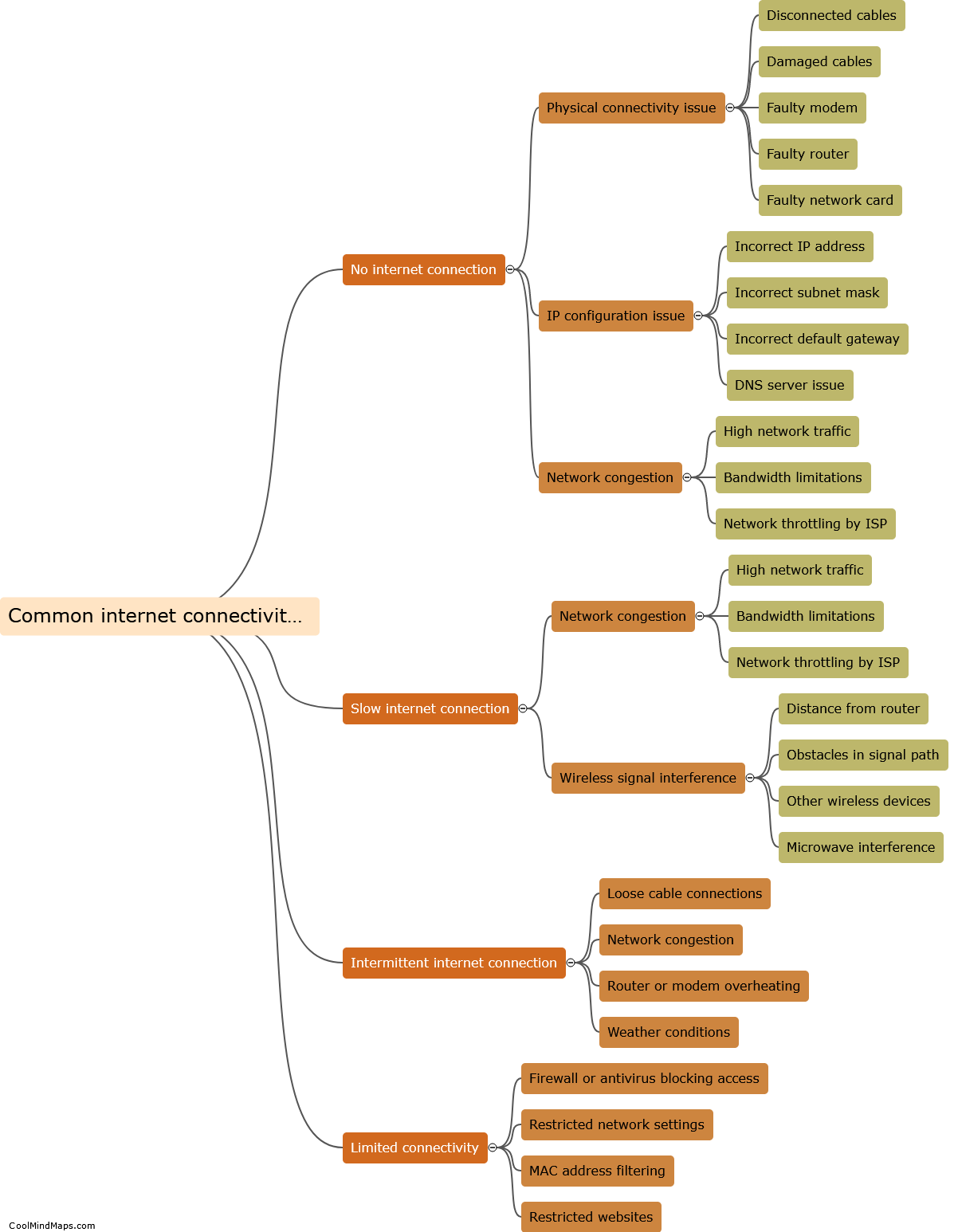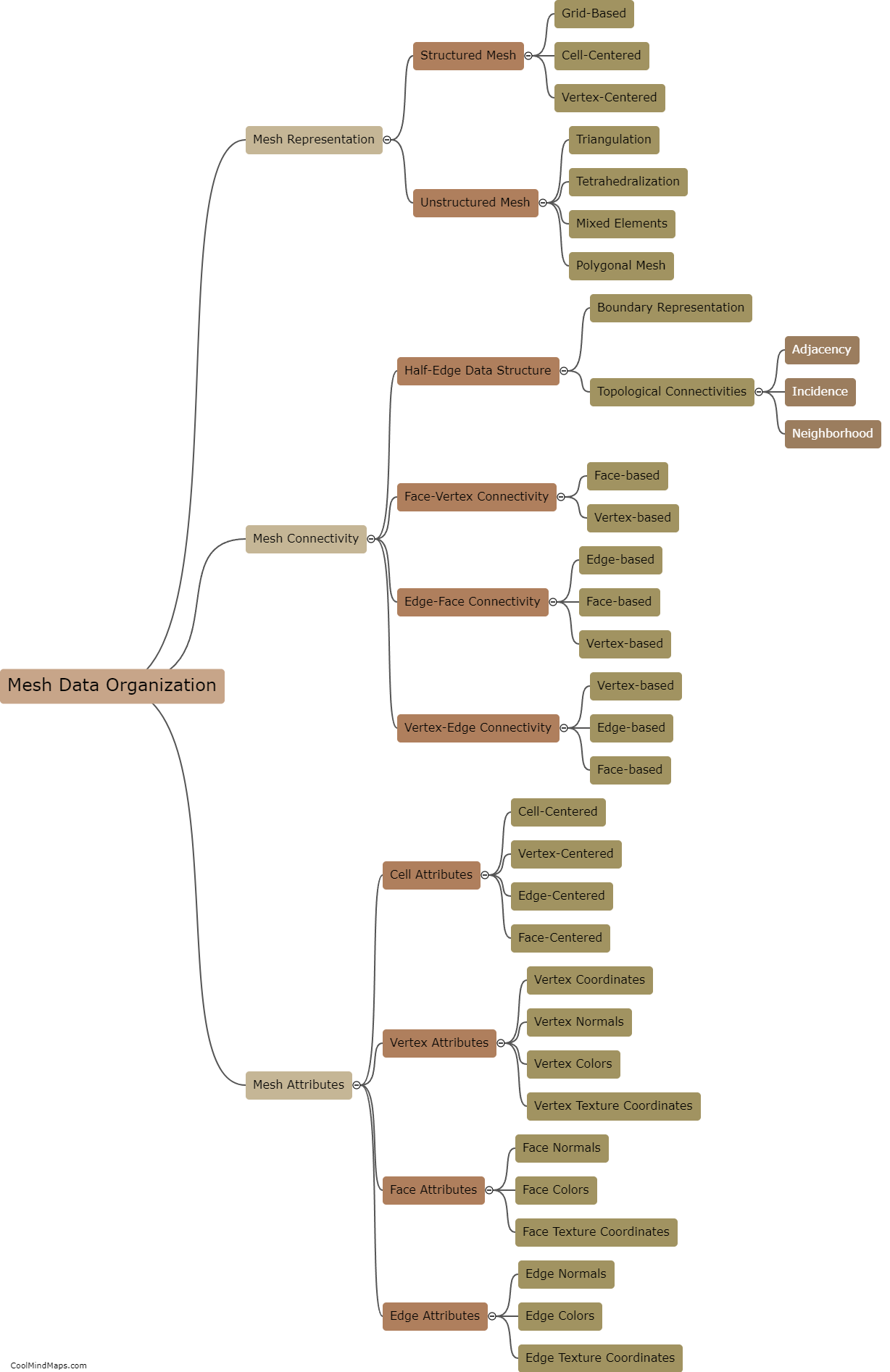How is the immune system affected by diseases?
The immune system plays a crucial role in protecting the body from harmful pathogens and diseases. However, it can be impacted and weakened by certain diseases. Many illnesses directly affect the immune system, causing it to either overreact or become suppressed. For example, infections like HIV/AIDS target and destroy immune cells, leading to a weakened immune response. Autoimmune diseases, on the other hand, result from an overactive immune system that mistakenly attacks healthy cells. Chronic stress and certain medical treatments such as chemotherapy can also suppress the immune system's functioning. In all these cases, the compromised immune system becomes less effective at fighting off infections, making individuals more susceptible to diseases and longer recovery times. It is essential to understand these interactions to develop effective strategies for disease prevention and management.
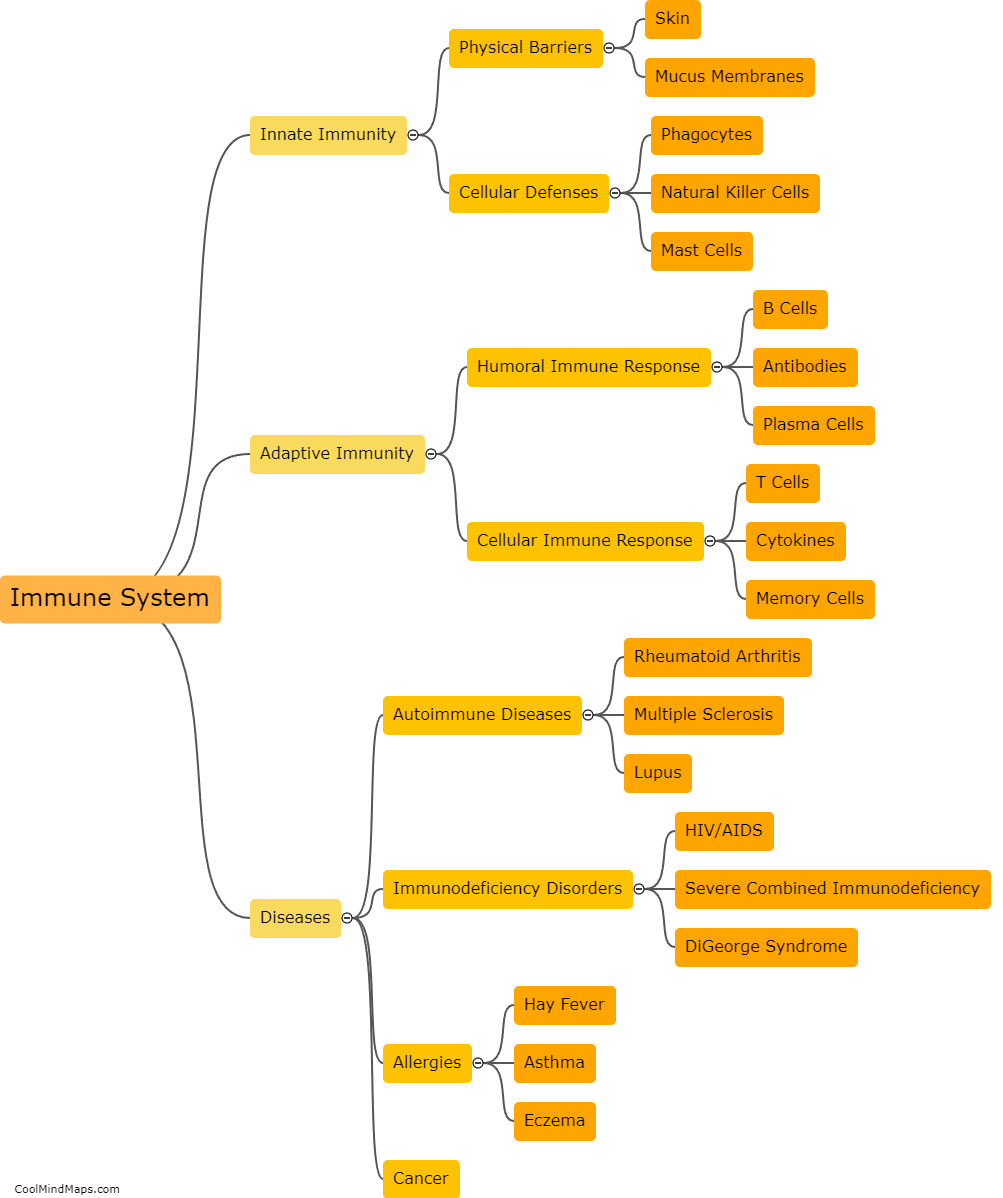
This mind map was published on 20 December 2023 and has been viewed 76 times.
